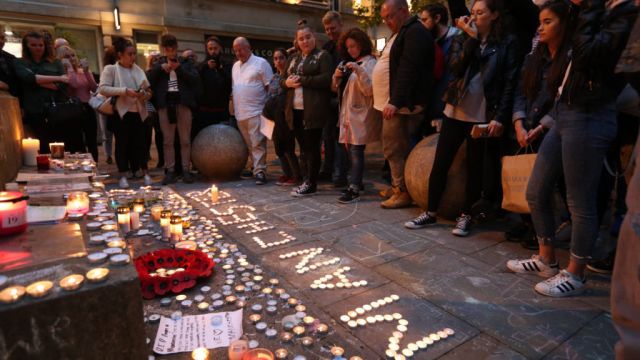A former police officer who led the initial response to the Manchester Arena bombing will not face criminal charges over statements he made during reviews into the attack, but will face a disciplinary hearing.
Retired Greater Manchester Police chief inspector Dale Sexton is to face internal proceedings which will judge whether he breached standards of professional behaviour.
He told the public inquiry into the 2017 attack that he made a deliberate decision not to tell other emergency services he had declared Operation Plato, the national name for dealing with a marauding terrorist firearms attack, because he feared it would hold ambulance and fire crews back.
However, he made no mention of going against protocol and keeping the declaration secret from partner services when interviewed in 2018 as part of the Kerslake Report, an independent review into the emergency response commissioned by Greater Manchester Mayor Andy Burnham.

When challenged by the public inquiry as to why he had not admitted earlier to going against the protocol, he said he felt as though he had “almost got away with it on the night”.
Inquiry chairman Sir John Saunders later ruled the officer had not deliberately made a decision to withhold the information.
Watchdog the UK Independent Office for Police Conduct (IOPC) originally found there were no grounds for criminal charges or misconduct proceedings, but this was challenged under its Victims’ Right to Review process.
A file was sent to the Crown Prosecution Service last year, and prosecutors have now confirmed no charges will be brought.
However, the review found there was sufficient evidence for a disciplinary hearing to take place, which will be organised by Greater Manchester Police.

IOPC regional director Emily Barry said: “This was a highly complex and challenging investigation. In circumstances like these, thorough scrutiny – both of the police, and our own decision-making, through our Victims’ Right to Review process – is essential to allow the public to have confidence in the police complaints process.
“Ultimately, we found sufficient evidence to indicate the officer may have breached the standards of professional behaviour when subsequently giving accounts of their decision-making on the night of the attack.
“It will now be for a police disciplinary panel to consider the evidence and reach a decision based on all the available information.”







